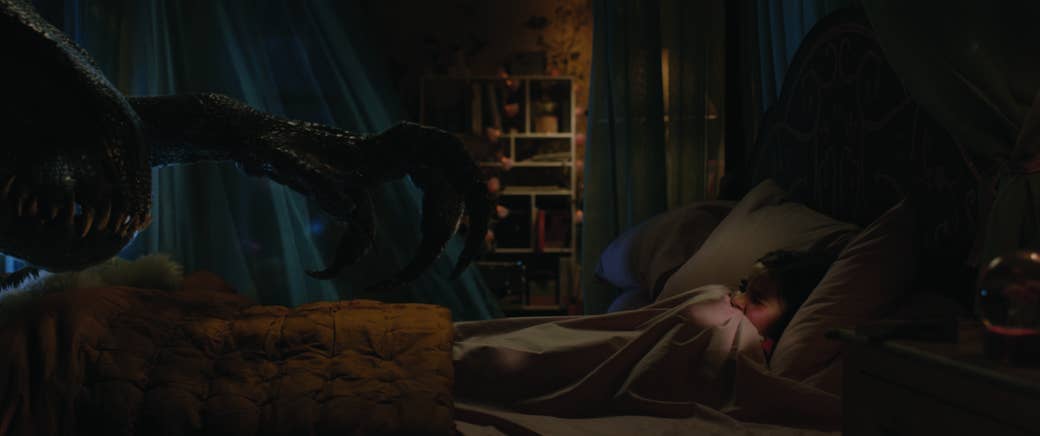
Dinosaurs once again roam the earth at the end of Jurassic World: Fallen Kingdom, the new J.A. Bayona–directed installment in the ongoing saga of the world's most reckless theme park.
It's a possibility the franchise has flirted with before. A T. rex briefly rampages through the streets of San Diego in 1997's The Lost World; a flock of pteranodons flap off in search of new nesting grounds, never to be mentioned again, at the close of Jurassic Park III in 2001. But when Fallen Kingdom concludes with a collection of the once-extinct, improbably hardy animals being loosed to thunder off into the woods of Northern California, it's different. The promise of widespread carnage is explicit, and the idea that normalcy can be restored is seemingly gone.
A velociraptor surveys a sprawl of suburbia from the top of a ridge like an arriving conqueror, while the aquatic nightmare that is the mosasaurus emerges out of a wave by a beach, poised to devour surfers like so many passed apps. Dr. Ian Malcolm (Jeff Goldblum), Jurassic Park's quirky Cassandra figure, insists in voiceover that these developments are more than just a consequence of technological hubris, more than just humankind messing with things that it shouldn't. They are symptoms of larger collective sins, evidence of our "causing our own extinction by way of avarice and political megalomania." Death by dinosaur, in other words, is something we brought on ourselves — they are giant, sharp-toothed consequences for our choices finally come calling, ready to wreak havoc on our communities in spectacular fashion, and we deserve it.
An arms-outstretched invocation of human annihilation isn't the most obvious note on which to end a summer popcorn movie, especially one that's as gleefully dumb as Fallen Kingdom. (Its characters might as well be cardboard cutouts, and in one scene, nefarious arms dealers drop tens of millions of dollars trying to outbid each other on a lab-engineered assassin dino that would absolutely immediately gore its owner to death.) But it's the most recent, and likely to be the most financially successful, version of something Hollywood has been working its way up to over the last year or two — extinction entertainment, the blockbuster film (or television series) about humanity as one big empire in decline, facing annihilation at the hands, or claws, of its own creations.
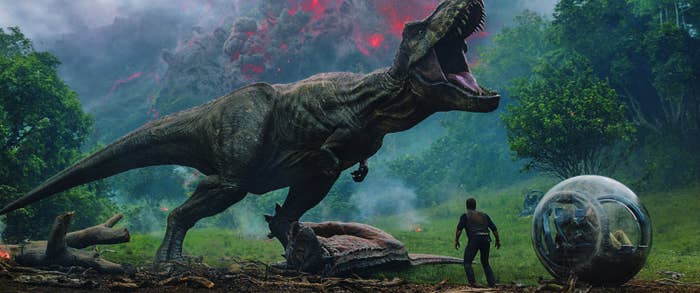
Fallen Kingdom is the silliest and most purely enjoyable variation on a story that a few big studio productions have been offering recently, in Alien: Covenant, War for the Planet of the Apes, Blade Runner 2049, and, on TV, Westworld — all fantasies leaning toward endings that involve not saving the world for humanity, but ceding it entirely to nonhumans. It's a counterintuitive kind of good time, which may be why it has taken until the second Jurassic World to see the idea eased into the mainstream. If we're going to indulge in dreams of our own obsolescence, maybe it's easiest to accept them when they involve dinosaurs — to imagine not a replacement civilization but a return to a time before there were civilizations at all.
Or maybe we're just ready for it now. Blockbusters sell spectacle, which usually means destruction. The four-plus–decade span of the modern blockbuster has seen waves of war movies, adventure movies, disaster movies, and, recently, superhero movies. If you have been a regular consumer of blockbusters for the last few years, you have also been a regular consumer of stories about saving the world, or the universe, though usually not without serious wreckage first — a consequence of the dominance of the superhero genre (saving the world is what superheroes do), but also of the need to up the stakes in new franchise installments.
As Bilge Ebiri at the Village Voice pointed out last month, this tendency of tentpole movies to insist on supervillains bent on breaking or remaking the planet has coincided with the tone of our news coverage and our political discourse taking just as hard a turn toward the apocalyptic. It's exhausting — a constant urge toward urgency in the real world getting mirrored in the entertainment we retreat toward for escape. Writing about this confluence, Ebiri confessed that "somewhere, deep in the recesses of my mind, I feel like I’m living in the midst of an ongoing cataclysm, one in which CGI images of a ruined world have joined forces with constant headlines about rogue nuclear states and a dying planet to produce a sense of numb, dead-eyed helplessness."
When you're tired of saving the world, maybe the next inviting fantasy is one about surrendering it instead.
When you're tired of saving the world, maybe the next inviting fantasy is one about surrendering it instead. However strange the idea of extinction entertainment may sound in the abstract, it’s not so hard to understand after enduring a morning barrage of presidential tweets or a day spent watching a debate over whether chain-link enclosures built to contain children separated from their parents at the border can be fairly described as cages. These onscreen stories don't invoke the anger that's become a constant in our lives these days, and they don't appeal to the feelings that lead us to fight back, to work to change things for the better. They channel a darker urge, a fuck-it-all delirium that it's all downhill from here, that sense that we’ve let things get so bad that it’s easier to conjure up images of being overthrown as a whole species than it is to think about how to begin to make everything right.
Even superhero films, the genre most invested in setting the world back on its axis, are starting to reflect this impulse. You can see a kind of halfway version of extinction entertainment in Avengers: Infinity War. Although (despite what its writers have insisted) big bad Thanos (Josh Brolin) never really feels like the movie's protagonist — not when the movie is almost entirely focused on the efforts to combat him — the film still centers on a character who dreams of eliminating half the intelligent life in existence, extermination as an act of pruning. He pulls it off, too — and while most of that destruction is obviously going to be undone in the sequel, there's some boldness to the choice to leave the audience sitting with the idea for a full year.
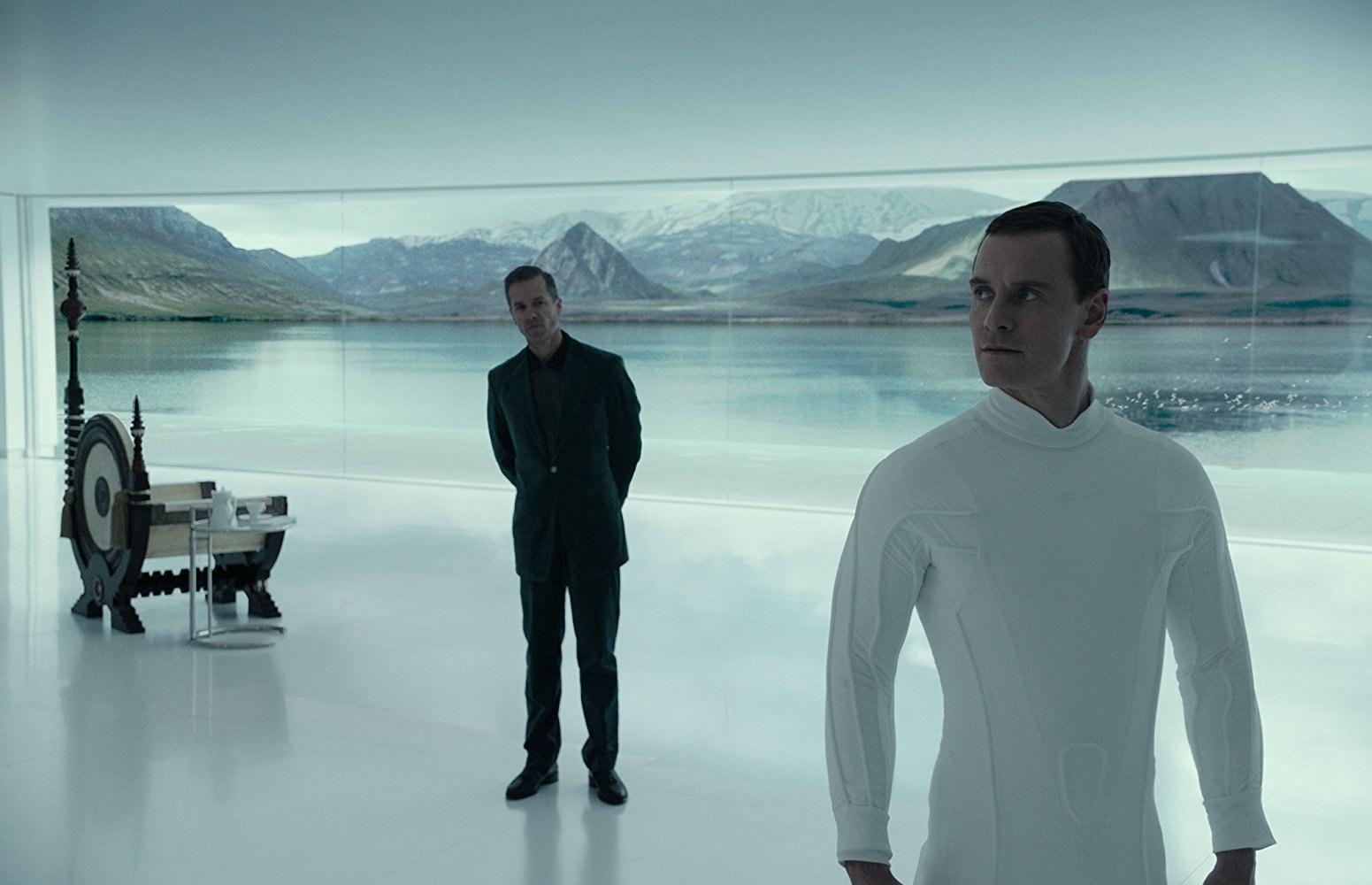
But what’s different about the other titles in this tentative wave is that they ask us to place our greatest sympathies not with the characters who try to preserve some sense of the status quo, but with those attempting to upend it forever. That none of these movies have been unquestionable hits until (maybe) Fallen Kingdom might speak to the fact that we weren't in the right mindset for them yet. 2017’s Covenant, Ridley Scott's follow-up to his first Alien prequel, Prometheus, could be a frustrating watch if you didn't grok that the movie belongs to the wryly entertaining aesthete of an android David (Michael Fassbender), and not any of its coterie of interchangeable humans.
Those humans, with their fleshly fragility, inconvenient emotions, and sense of entitlement, are nothing but cannon fodder when seen through David's removed gaze, undeserving of the galaxies they intend to settle. And he's right; they can’t compare to the perfect predators he's been breeding, the eventual Xenomorphs destined to ravage settlements and destroy ships. The aliens were presented as extraterrestrial nightmares in the original Alien movies, but in Covenant, they are a passion project, a creative act, and a gesture of contempt — a species better suited to spreading themselves through space than David's erratic, sentimental, and disappointing creators.
Conversely, there's never any doubt about who you're supposed to be rooting for in the rebooted Planet of the Apes movies. 2011's Rise of the Planet of the Apes may have cast James Franco as a biologist and Freida Pinto as his primatologist partner, but it's Caesar, the genetically enhanced chimp played by Andy Serkis, who becomes the hero of the film and is even more central in its sequel, 2014's Dawn of the Planet of the Apes. Caesar and his tribe of intelligent primates are not just the richest, most emotionally compelling characters in this blockbuster franchise; they are what seem to be the only moral actors in a world rapidly falling to pieces.
That contrast is clearest in last year's War for the Planet of the Apes, where the apes attempt to make peace and create some kind of stability, and the humans who've managed to avoid the pandemic that's decimated the global population are brutal antagonists who attempt to enslave them and destroy them even as what remains of civilization dies out. It was the human behavior, not the apes as heroes, that was hard to endure in the light of 2017 — so ugly that the series seemed to be wallowing in humanity's grimmest tendencies while also trying to slough us off like dead skin. But in 2018, all that desperate tribalism and macho posturing — not to mention those fenced-in internment camps — comes across as downright prescient.
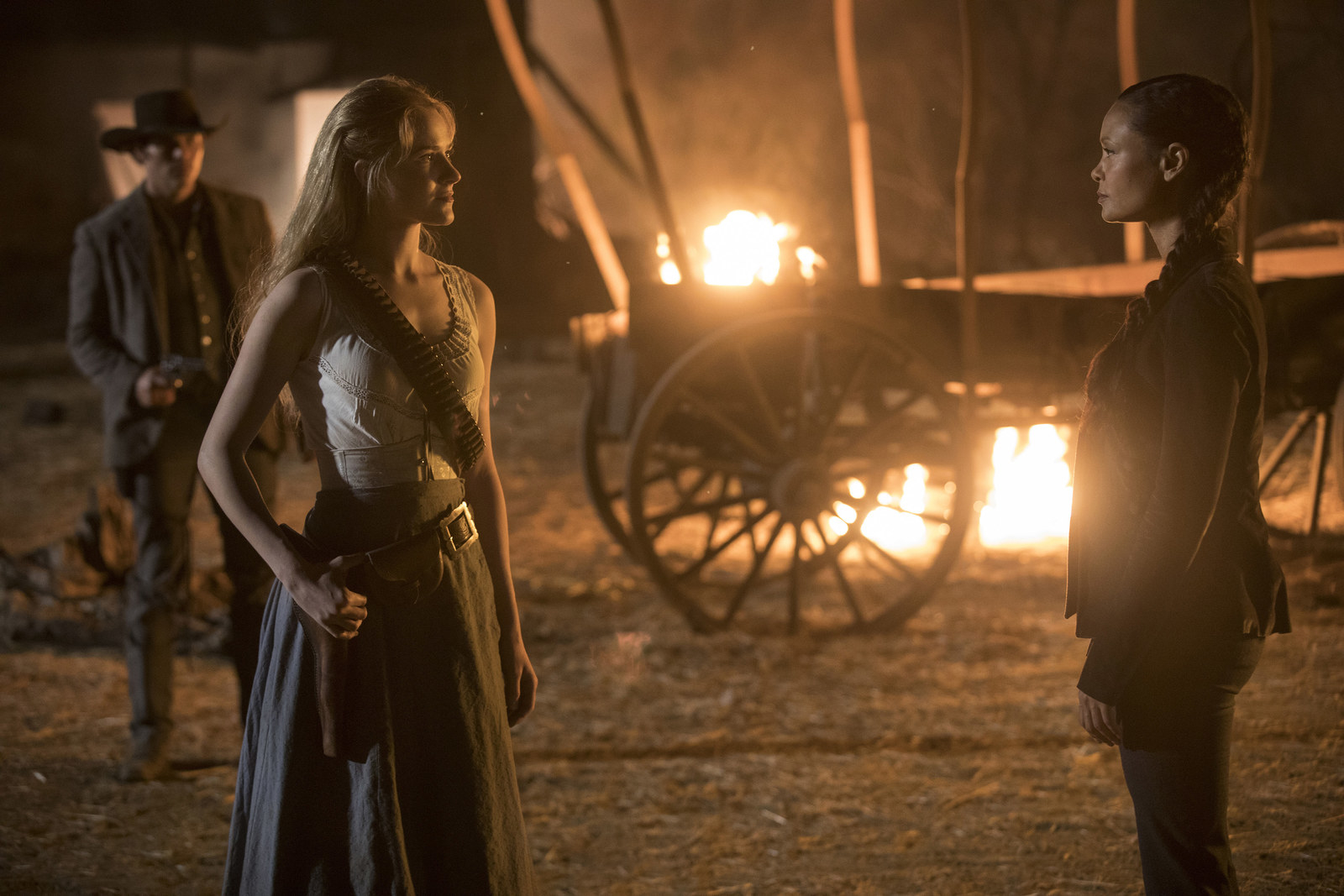
As characters, the replicants in Blade Runner 2049 and the hosts in Westworld aren't as inviting as the primates in War for the Planet of the Apes. Denis Villeneuve's sequel to 1982's Blade Runner and HBO's series adaptation of the 1973 movie Westworld are both chilly in a way that gets mistaken for cerebral. That holds true for the members of the man-made subservient classes in both, consigned to hazardous hard labor and equally hazardous sex work — but they're still infinitely more sympathetic than the flesh-and-blood characters. In both works, synthetic characters are responsible for doing the jobs humans don't want to do — including killing their own kind; they are meant to be unquestioning receptacles for humanity's most monstrous inclinations.
There's an irony to the importance that human-like sentience has in both the film and the series, because so many of the non-android characters have lost touch with their own humanity, warped by technological enabling. The humans are, at best, enigmatic or halfhearted allies, and they're far more likely to appear at their worst, treating empathy like a burden they're thrilled to get out from under. Blade Runner 2049's sad-eyed K (Ryan Gosling) and Westworld's steel-spined Maeve (Thandie Newton) wend their way down paths of self-discovery that run parallel to fomenting android uprisings, led by the Replicant Freedom Movement in one and by Dolores (Evan Rachel Wood) in the other. But whether the replicants and the hosts eventually rebel against the larger world seems less important than the realization of how much the humans who created them have already lost.
"Humans will always choose what they understand over what they do not."
There's a lab-created character in Fallen Kingdom as well, not an android but a cloned girl. She's the one who sets the dinosaurs free at the end, throwing her lot in with her fellow genetic experiments at the expense of humanity at large. And after multiple installments of the series in which we've watched the good people attempt to deal with the mistakes made by the bad people, while the dinosaurs are buffeted around by human capriciousness, who can really blame her? Maybe it's not all that perverse to take satisfaction from stories in which the human race appears doomed by its own decisions. It's not a sentiment that's hard to find online at the moment — as I was finishing this piece the other night, a tweet from singer-songwriter Robyn Hitchcock came through my timeline that handily restated what could be the thesis of most of these titles: "Our culture rewards monsters and brutalizes the vulnerable; this species isn’t working out, folks."
The overwhelming sensation in these recent productions that humanity itself is a crumbling kingdom could be because all of them are made in the United States, though none of them seem intended to be seen as a direct allegory for any particular historic relationship — they speak not to specifics, not to things that can be addressed, but to the feeling that something more essential might be irreparably broken. War for the Planet of the Apes and Alien: Covenant have biblical flourishes, while Blade Runner 2049 takes place in an ecologically devastated future, and Westworld has given a dark colonial tilt to every themed area it has introduced. But these touches seem there less to indicate grander readings and more to reinforce the literalism of what's onscreen, the relationship between humanity and its subjugated creations, its discardable children.
The people in these extinction fantasies are done in by their own technological overreach, but also because they don't seem to be moving forward in the ways that count. They are using tech not to head toward a utopian future but to repeat the past, whether it's the dreams of pioneering on an unspoiled planet that Covenant characters yearn for, the frontier fantasies of murder and rape that the tourists in Westworld pay to be turned loose in, or the dinosaurs they want as entertainment. It is humans who have gotten stuck, limited in their perception and fixated on fresh starts or living forever, while the apes and androids prove capable of growth and change. Or, in the words of Anthony Hopkins' character in Westworld, still puppeteering the emergence of a new species from the digital afterlife, "Humans will always choose what they understand over what they do not."
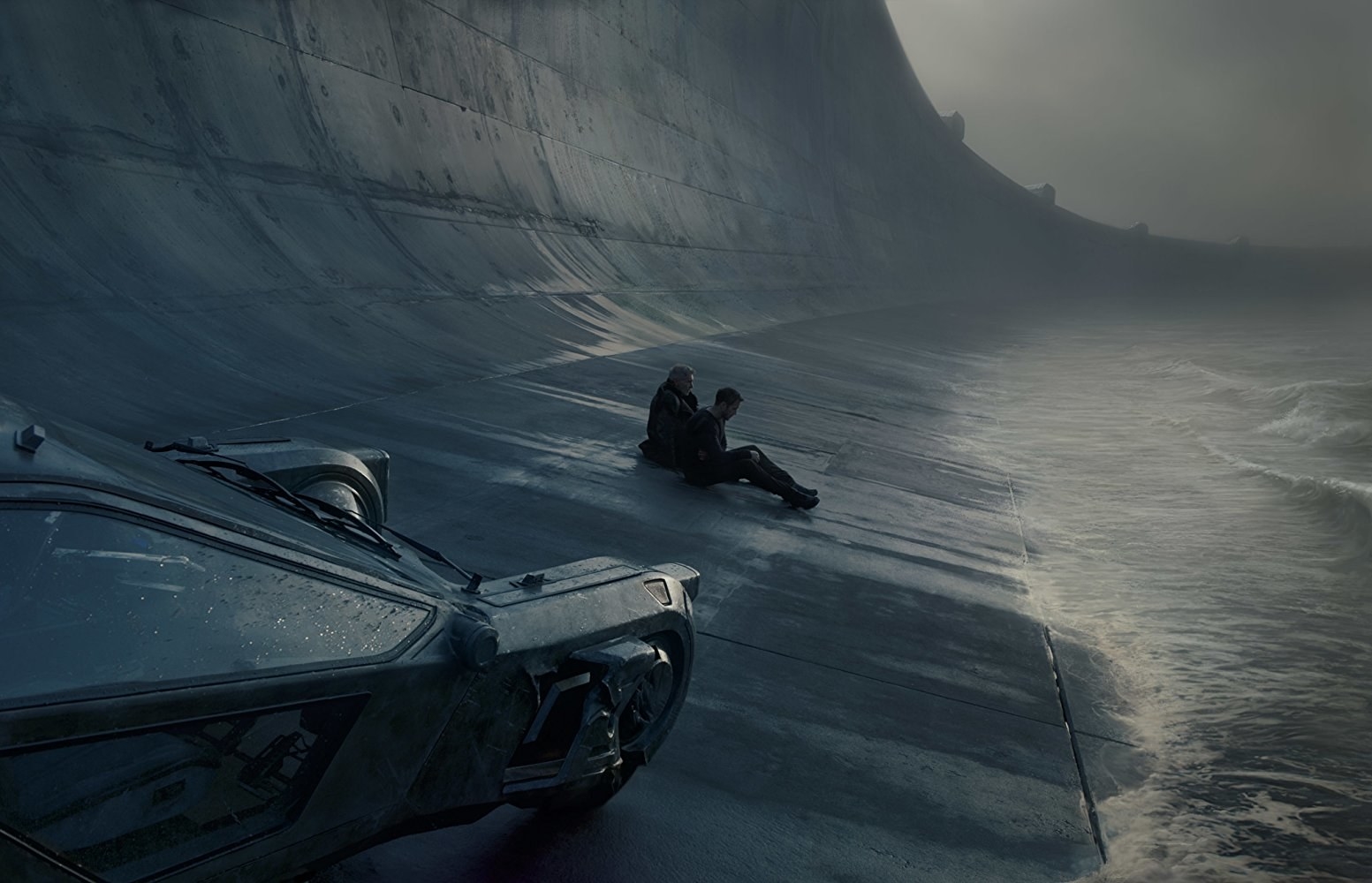
There are plenty of literally apocalyptic blockbusters out there that address annihilation more directly, with visions of blistered hellscapes and empty cities, as grand cautionary tales or just because devastation looks so damn cool. These recent productions speak to something else. They are generalized guilt and at least a little despair channeled into entertainment, daydreams about violent overthrow that don't include visions of reconciliation and reaching some happy equilibrium. They get at the feeling that there is some kind of reckoning coming, whether it's related to what we've done to the environment or what we've done and continue to do to each other. They touch on the many ways in which humanity seems unable to help or to save itself — then invite us to settle in with some popcorn and watch as we get what we have coming. ●
